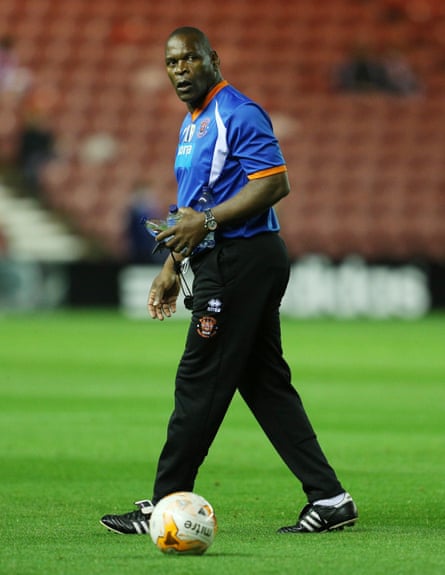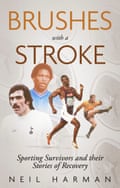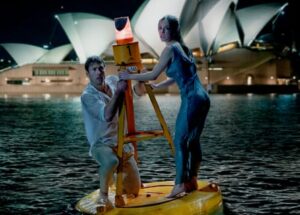Noel Blake walked through Trentham Gardens on the outskirts of Stoke-on-Trent staring up at the trees and making a mental note of those with the sturdiest branches. What he was trying to get clear in his head in those fleeting moments only he could really know.
There comes a time in most stroke healing – or the lack of hope for it – when the victim reflects on the dark side. For professional athletes to be robbed of that they cherished most – their athleticism – must be the hardest cut of all.
Blake had enjoyed a professional playing career of just over 20 years, most productively for Birmingham, Portsmouth, Leeds and Stoke, ending with almost 150 appearances for Exeter, before he was appointed the club’s manager in 2000.
He embarked on a varied coaching career, which embraced five years with the Football Association as coach to the England under-19s. The stressful nature of his departure from that post was, in his estimation – as there could be no definitive proof – the root cause of his stroke in 2015 at the age of 53.
“There was inevitable trauma every time a new regime came into any football club or association and made changes,” he said. “Many people in the game could relate to that. I didn’t regard it as a problem initially but the way I was spoken to [by those inside the FA] resonated then and still does to this day.
“It was an emotional trigger. Because of legalities, I can’t go into it any more deeply. One day I may be able to tell the world how I really felt about it. Dan Ashworth had come in [to the FA] as the technical director and he had every right to make changes. I went and Kenny Swain [the former Chelsea and Aston Villa defender] left as well. It all really affected me, more than I realised at the time.”
Having tried to deal with the debilitating FA experience, Blake joined Blackpool but almost immediately became centre-stage in another upheaval. “José Riga was the manager, I discovered through a third party that he needed a coach, and we spoke,” he said. “There were a lot of financial difficulties at that time, but we got on well and I had no issues with him.
“The club wasn’t in a healthy position, there was disquiet between him and the owner, José left [after four months] and Lee Clark was appointed after he had left Birmingham. I asked what he wanted from me and how long he wanted me to stay as I’d had an offer from the Professional Footballers’ Association. Lee said he wanted me, so I put the other thing aside and within two weeks he brought his best friend, a lad called Paul Stephenson, on to the coaching staff, which wasn’t a problem even though it blindsided me a bit.
“I had a feeling it wouldn’t work, and I left soon afterwards. I’d lost my job at the FA, then Blackpool, the PFA position had gone and all of that took a toll. I was looking out for work and there was nothing available, people wouldn’t return your calls, it was the brick wall.”
Within six weeks of departing Bloomfield Road, Blake’s life altered irrevocably. “A couple of friends had come over to see me, we were chatting, and suddenly they said they couldn’t understand what I was saying. My speech was slurring.
“I had gone for a walk that morning and felt wobbly, just very lethargic. I was sapped of any energy and a couple of times I felt as though I might stumble but I didn’t.”
Then came the mumbling episode. “I rang my wife at hospital where she worked as a personal assistant and described what had happened. She gave my symptoms to one of the consultants who told her to collect me straight away and take me to triage. Within minutes of being assessed, they said I’d probably had a stroke and I was admitted there and then.
“After a couple of hours, which seemed more like an eternity, I was on a ward and when they confirmed a stroke I kind of broke down. A nurse said: ‘You see that gentleman over there, he’s had a severe stroke, he can’t walk, he can’t speak and though yours is bad it’s not nearly as bad as that.’
“That gave me a small sense of relief, but it was when I telephoned my mum to tell her, that’s when I lost it emotionally. I was 53 years old and in decent physical shape if obviously not quite like the old days.
“My knees were pretty shattered from all the years of football, but I’d never been a big drinker, maybe a beer with my meal and that was it. I never smoked, never took a drug, my diet had always been that of an athlete. I wasn’t doing anything that would suggest the potential for a stroke. The only thing I could point to was related to stress.”
As his doctors completed rounds of intensive medical tests, they discovered that on top of the debilitating effect of the stroke, Blake had a hole in his heart. Surgeons repaired the hole, inserting mesh to plug the gap, and it was another warning to take life a little bit easier.
after newsletter promotion
“I’m glad I didn’t realise I had the condition when I was playing but I remembered how I used to struggle when it came to the long distances in training and had to take quite a bit of time to recover,” he said. “When I reflected on players who had collapsed and, in some cases, died on the field of play it did make me wonder that if I had found out about it earlier, would I have been able to enjoy a full career?”
But he did complete it and now required similar fortitude in another more punishing challenge.
The healing process after a stroke is forever ongoing. “I had mine 10 years ago and only three years back there were times when I wouldn’t have been able to face a room full of people, I’d just turn away,” Blake said. “I tried to deal with what was in front of me, not something somebody else might have expected from me.
“I’m not fully there yet but I’m getting better over time … It was damn awful. There were times when I literally wanted it all to end.” The walk in Trentham Gardens was the darkest of those moments.
“Self-pity came into it as I was a proud man, and I became reliant on others to help me especially if I was having one of my mood swings.”
In his time on the touchline, Blake was full on, committed, urgent. He said watching Jürgen Klopp managing Liverpool brought his own career back to him. “He reminded me of how I was, a passionate coach who drove himself and his players. It struck me that when foreign coaches behaved like that it was accepted but if it was a British coach, we were accused of being too animated. As a coach I just worked how I was, no point changing who you were.”
This is an edited extract from Brushes with a Stroke by Neil Harman, published by Pitch (£14.99). To order a copy go to guardianbookshop.com. Delivery charges may apply.












